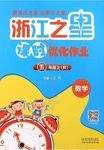题目内容
Some people think that as more and more people have televisions in their homes, fewer and fewer people will buy books and newspapers. Why read an article in the newspaper, when the TV news can bring you the information in a few minutes and with pictures? Why read the life story of a famous man, when a short television program can tell you all that you want to know?
Television has not killed reading, however. Today, newspapers sell in very large numbers. And books of every kind are sold more than ever before. Books are still a cheap way to get information and enjoyment. Although some books with hard covers are expensive, many books are printed today as paperbooks (平装本), which are quite cheap. A paperback collection of short stories, for example, is always cheaper than an evening at the cinema or the theater, and you can keep a book for ever and read it many times.
Books are a wonderful provider of knowledge and pleasure and some types of books should be in every home. Every home should have a good dictionary. A good encyclopedia (百科全书), though expensive, is useful, too, because you can find information on any subject. Besides, you can have such books as history books, science textbooks, cookbooks, and collections of stories and poems. Then from time to time you can take a book of poems off your shelves and read the thoughts and feelings of your favorite poets.
53. It can be inferred from the passage that ____.
A.Fewer and fewer people will buy books.
B.A good dictionary should be kept in every home.
C. Books with hard covers sell better than paperbooks.
D. More people like TV programs about famous men.
54. What does the sentence “Television has not killed reading, however.” underlined in the second paragraph suggest?
A. People only need reading, though.
B. Reading is still necessary today.
C. Reading is more fun than television.
D. Watching television doesn’t help reading.
55. What can we learn from the passage?
A. TV programs are a chief provider of knowledge.
B. Cinemas are the best choice in getting information.
C. Reading is cheap way of learning and having fun.
D. Newspapers are an expensive way to enjoy oneself.
BBC

 小学数学口算题卡脱口而出系列答案
小学数学口算题卡脱口而出系列答案 优秀生应用题卡口算天天练系列答案
优秀生应用题卡口算天天练系列答案 浙江之星课时优化作业系列答案
浙江之星课时优化作业系列答案阅读理解
We can not live a modern life without traveling. The fastest way of traveling is by air. With a plane
one can travel in one day to places which it took a month or more to get to a hundred years ago.
Traveling by train is slower than by plane, but one can see the country he is traveling through.
Modern trains have comfortable seats and dinning-cars. They make even the longest journey enjo
yable.
Some people prefer to travel by sea when possible. There are large luxury liners or river boats
.They are not as fast as trains or planes, but traveling by sea is a very pleasant way to spend a holi
day.
Many people like to travel by car. They can make their own timetable. They can travel hundred
s of miles a day, just as their wish. They can stop wherever they want to see something interestin
g or to enjoy a good meal at a good restaurant, or to spend the night at a hotel. That is why peopl
e choose traveling by car for pleasant trips, while they usually take trains or planes for business.1.According to the passage, the fastest way of traveling is _______.
|
A.bycar |
B.bytrain |
C.byplane |
D.bysea |
2. If we travel by car, we can _________.
|
A.enjoythelongestjourney |
B.travelonlyfiftymilesaday |
|
C.makeourowntimetable |
D.traveltoaveryfarplaceinafewminutes. |
3. When people travel on business, they usually take _________.
|
A.aboatoratrain |
B.acaroratrain |
|
C.aplaneoracar |
D.atrainoraplane |
4. _______ have comfortable seats and dinning-cars.
|
A.Cars |
B.Moderntrains |
C.Planes |
D.Buses |
5.If possible, people like traveling by sea because _______ .
|
A.itisasfastastrainsandplanes |
|
B.itisapleasantwaytospendaholiday |
|
C.itisverycheap |
|
D.itcanstopwherevertheylike |
|
